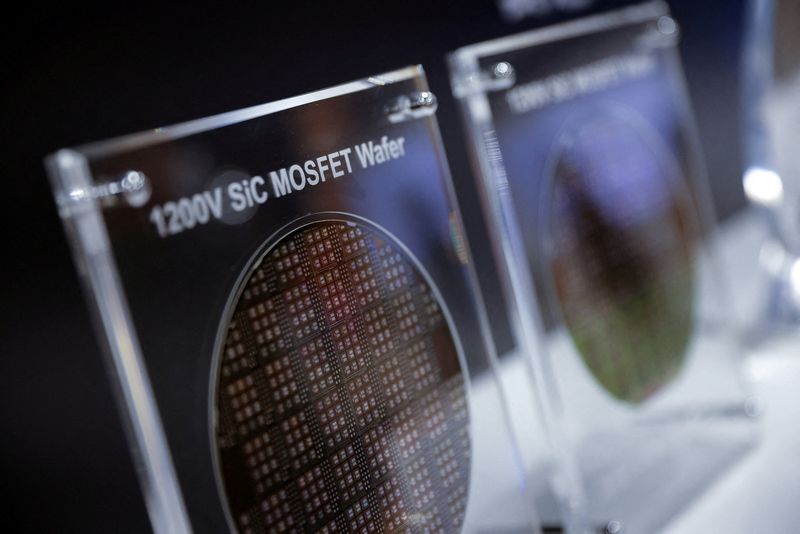By Yimou Lee, Ben Blanchard and Dhwani Pandya
TAIPEI/MUMBAI (Reuters) - Foxconn said it intends to apply for incentives under India's semiconductor production plan, a day after the Taiwanese firm split with Vedanta (NYSE:VEDL) on a $19.5 billion chipmaking joint venture.
Foxconn withdrew from the JV with the Indian metals-to-oil conglomerate on Monday, in a setback to Prime Minister Narendra Modi's chipmaking plans for India.
The world's largest contract electronics maker said on Tuesday it was working towards applying under India's Modified Programme for Semiconductors and Display Fab Ecosystem, a $10 billion plan offering incentives of up to 50% of capital costs for semiconductor and display manufacturing projects.
"We have been actively reviewing the landscape for optimal partners," it said in a statement. "Foxconn is committed to India and sees the country successfully establishing a robust semiconductor manufacturing ecosystem."
Although Foxconn will start afresh, the Vedanta breakup is a setback for Modi who has made chipmaking a top priority in pursuit of a "new era" in electronics manufacturing and hailed the JV as an "important step" last year.
Foxconn is in talks with several local and international partners to make semiconductors in India using mature chip manufacturing technology for products including EVs, two people with direct knowledge of the discussions said, requesting anonymity as the plans are confidential.
"The company will continue to be there, just that it will find other partners," one of the people said.
India expects its semiconductor market to be worth $63 billion by 2026, but Modi's plan has so far floundered.
Although three companies applied for incentives last year -- Vedanta-Foxconn JV, Singapore-based IGSS Ventures and global consortium ISMC, which counts Tower Semiconductor (NASDAQ:TSEM) as a tech partner -- no plan has been sealed.
The $3 billion ISMC project is stalled because Tower is being acquired by Intel (NASDAQ:INTC), while another $3 billion plan by IGSS was also halted because it wanted to re-submit its application, Reuters has reported.
VENTURE TROUBLES
Explaining the Vedanta split, Foxconn said "there was recognition from both sides that the project was not moving fast enough" and there were other "challenging gaps we were not able to smoothly overcome", without giving more details.
"This is not a negative," Foxconn added.
Reuters had earlier reported that deadlocked talks on finalising European chipmaker STMicroelectronics as a tech partner of the Vedanta-Foxconn JV, and delayed incentive approvals were among reasons for the pullout.
The two sources said on Tuesday that Indian authorities and Foxconn were both concerned about Vedanta's finances, which had also contributed to the Taiwanese firm's decision to end the JV.
Vedanta's India unit said in its most recent annual report that its net debt stood at 452.60 billion rupees ($5.5 billion) as of March 31, 2023, more than doubling over a year due to dividend payments and capital expenditure outflows.
In a statement to Reuters, Vedanta said the India unit, Vedanta Ltd, is in "a comfortable financial position" and there was "no basis" for speculation. India's IT ministry did not respond to requests for comment on Tuesday.
Moody's (NYSE:MCO) this year downgraded Vedanta's London-based parent, Vedanta Resources, and warned that ongoing debt related issues expose Vedanta "to material refinancing risks and exacerbate likelihood of a payment default or a distressed exchange".
There have been no defaults on the group's debt, Vedanta Chairman Anil Agarwal has said.

Like Foxconn, the Indian government has said the breakup of the JV had "no impact" on India's semiconductor plans, adding that both companies were "valued investors" in the country.
Foxconn's Taipei listed shares closed up 0.5%, underperforming the broader market. Vedanta's shares fell as much as 2.6% in Mumbai, before paring some losses.